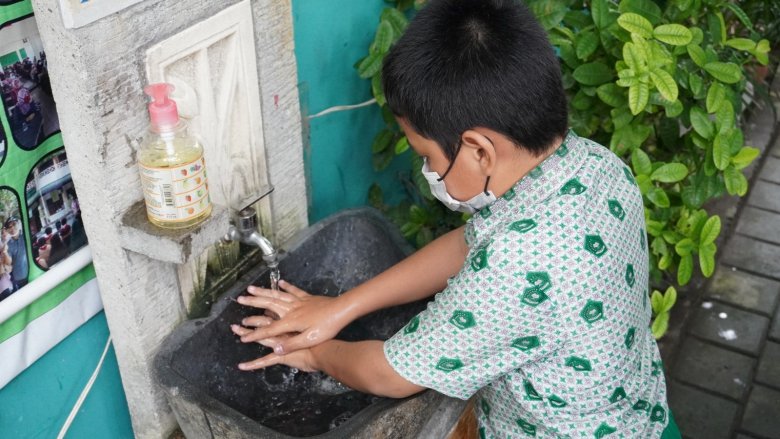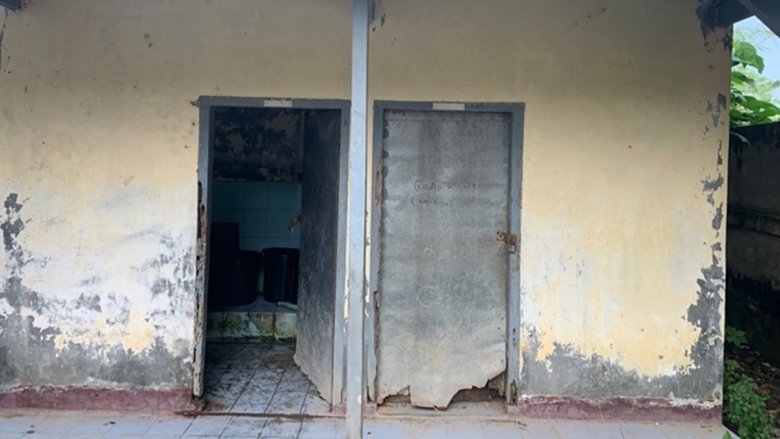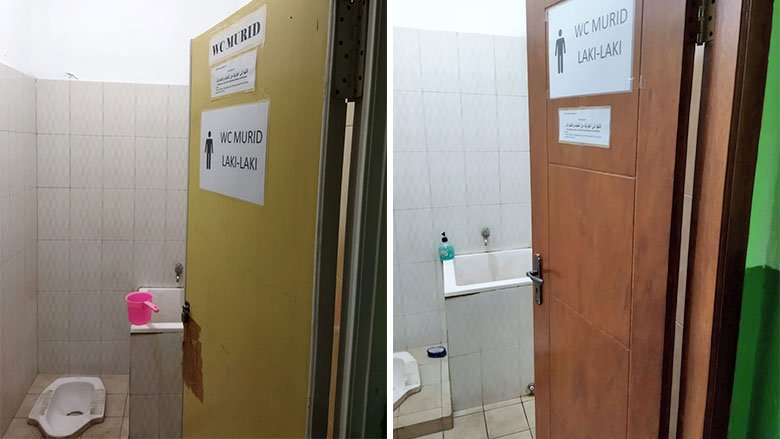Almira is one of 126 students at a madrasah, a religious school, in slum area of Jakarta. It used to have a single toilet for girls with a door with broken hinges, no ventilation, no knob or lock, and tape covering several holes.
“I didn’t feel safe when I used it,” she said.
World Health Organization guidelines recommend one toilet for every 25 students. Inadequate water, sanitation, and hygiene facilities in schools negatively impact health, attendance, and development among children. Yet, despite the direct connection between the availability of water, sanitation, and hygiene facilities and student health, funding for them has in the past been inadequate at Indonesian schools. A World Bank-supported project, Realizing Education's Promise: Support to Indonesia's Ministry of Religious Affairs for Improved Quality of Education, approved in 2019, is helping Indonesia improve infrastructure, including water, sanitation, and hygiene, at madrasahs in Indonesia.
The importance of hygiene and health standards for preventing disease transmission has come into further prominent focus in the wake of the COVID-19 pandemic. In April, four Indonesian ministries – Education, Culture, Research, and Technology (MoECRT), Religious Affairs (MORA), Health (MOH), and Home Affairs (MOHA) – decreed that for schools to reopen, they would need clean toilets and proper hand-washing facilities to prevent the spread of the virus.
Many schools – which even before the pandemic didn’t have proper toilets or sinks with running water and soap -- were struggling to fully implement the guidelines.
A 2021 World Bank study supported by the Australian Government, documented the water, health, and hygiene challenges facing Indonesia’s schools. It found that three quarters of them did not meet the WHO student-to-toilet standard. Among those that did, 45 percent lacked soap and running water. The study also found that madrasah schools lagged other schools in the average number of toilets available.
Typical of these challenges, and how they are even greater in rural areas, was what World Bank staff observed during visits to Lombok, Banten, Jakarta, East Java, Central Java, Yogyakarta, and South Sulawesi.
In Lombok, where they met Hafiz, an adolescent who attends a madrasah at which he and his 200 classmates have access to a single poorly maintained toilet. Another madrasah the team visited had a toilet that was poorly lit and surrounded by construction debris and trash. Madrasah students in East Java reported that they often used nearby river as their toilet because the school did not have a functional one.
In Lombok, poor condition of a Madrasah’s toilets. Photo: Karin Thalia/World Bank
The World Bank's support helps the Performance and Affirmative Grants scheme promote the improvement of school facilities and learning environment. Through this, madrasahs have been able to improve the availability of clean toilets with running water and soap and observe the COVID-19 protocols. This year alone, 2,302 madrasahs have received IDR 150 million each (approximately USD 9,600) grants and built or renovated their facilities including WASH facilities to fulfil students’ basic needs and improve daily sanitation practices.



